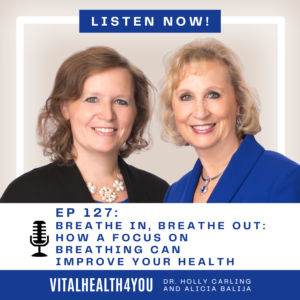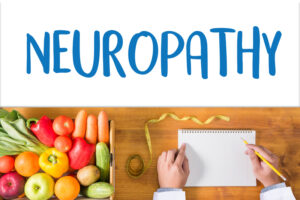Part I
These complaints are so common today, that to NOT hear them now seems odd. There are many, many reasons for fatigue, and therefore, a good comprehensive evaluation is necessary if the underlying reason for the fatigue is to be illuminated, and therefore resolved. Unfortunately, the common treatment is to just call it depression or anxiety and administer psychotropic drugs.
Finding the underlying culprit can be easy or complex. Let’s review some of the causes. Starting from the top, down, we’ll begin with the head. The most obvious is sleep. Too much, not enough or poor quality of sleep can contribute to tiredness/fatigue. Inability to fall asleep, stay asleep, sleep apnea or sleeping odd hours due to work schedule all contribute as well. These are all conditions that can be alleviated or managed.
Certain neurological disorders such as MS, Lou Gehrig’s, and any disturbance in normal output of the brain hormones such as serotonin, dopamine, and endorphins can affect energy levels. Also, psychological states such as depression, anxiety, grief, stress, loneliness, overwhelm, lowered ambition, can all have an impact on energy levels. These too can be helped to varying degrees to offset tiredness.
Heart and lung diseases such as congestive heart failure (in any of its varying stages), dysfunctional heart muscles or valves, asthma, emphysema, COPD or pneumonia can have significant impact on your energy levels. If you feel these conditions are beyond help, be comforted in knowing there are still things we can do to help with energy.
Of course, nutrition will certainly impact energy levels. Whether we’re talking about excesses (food quantity or quality), stimulants which later cause you to crash (such as coffee, energy drinks, soda pop and other sugars), or even electrolyte imbalances, nutrition plays a vital role. Along with that, we have to look at the level of digestive capacity. Gastrointestinal disorders such as reflux (GERD), heartburn, inflammatory bowel disorders and enzyme deficiencies will alter how much nutrition can be digested and absorbed. These will impact energy.
Endocrine disorders such as low thyroid functioning, cortisol imbalances due to stress, sugar consumption or altered adrenal function, diabetes, low blood sugar or sex hormone imbalances can cause fatigue. This includes pregnancy, menopause, andropause (male menopause), menstrual disorders, estrogen or progesterone deficiencies, etc.
Chronic infections, connective tissue disorders (arthritis, lupus, fibromyalgia, etc.), anemia, cancer and autoimmune disorders need to be considered. Certain medications, such as blood pressure and heart meds, opiate-derived pain meds, muscle relaxants and even the medications given for depression and anxiety can cause fatigue. Lack of exercise, or even too much exercise can also contribute.
Generally more than one thing is involved. It is rarely simply one reason. That’s why it’s important to have a complete, comprehensive evaluation from a practitioner who looks deeper than just their specialty.
In Part II of “I’m Exhausted, Wiped Out, Sooooo Tired!”, we will discuss options to help remedy many of these reasons for fatigue.
Part II
In Part I we covered just a few of the reasons why someone could be so exhausted. This Part begins to shed light on the control we have over our ability to get our own energy up and moving.
Sleep is perhaps the most obvious. As with fatigue, there are myriad reasons why you don’t sleep well. Sleep issues vary from person to person. When it’s difficult to fall asleep because the brain isn’t shutting down, it can be a lack of minerals. While calcium lactate and magnesium are well known in their positive effects on sleep, a whole mineral complex from a plant source such as kelp, alfalfa or other green is better than isolated mineral supplements.
If you’re waking during the night for no reason, that could mean you have a blood sugar issue and your glucose levels are plummeting. Avoiding carbohydrates late at night and eating a small amount of protein before bed could help. If that isn’t enough, there’s more you can do, but this is a start.
There are a lot of hormones and chemicals produced by the body that effect sleep. They include cortisol, melatonin, estrogen, testosterone, norepinephrine/epinephrine, dopamine, acetylcholine, histamine, hypocretin, galanin, adenosine, serotonin and insulin. Imbalances in any of these hormones can negatively impact sleep. The body needs essential fatty acids, amino acids and minerals to make these hormones, so diet can play a big part in sleep.
Neurological disorders related to the brain or with immune origin can play a role in the ability to generate energy. So can endocrine disorders. As with the hormones and chemicals mentioned above, other hormones produced by the endocrine system can influence energy levels too. The health of the thyroid, adrenals, pancreas and ovaries/gonads need to be taken into account when energy levels fall. Acupuncture and specific supplements can really help support these systems if taken properly and with other co-factors needed to help them function optimally.
Chronic infections and connective tissue disorders can certainly be helped with acupuncture, nutrition and supplementation. One food that is getting new respect and surging in popularity is chicken broth made with a real chicken (not from a can or box). Many people add knuckle bones or other cartilaginous parts because it has been found to help collagen/joint disorders when consumed on a regular basis.
Since medications have a reputation for causing fatigue, addressing the issue another way so that it can be managed with fewer medications (or ideally none) will help with energy. However, I don’t recommend you waltz into your doctor’s office and announce you will no longer be taking your medications. Without taking other steps to resolve your condition, you’ll be in a world of hurt. The best way to be able to give up medications is by healing the condition and no longer needing them. Your energy levels will make you happier too!
©2015 Holly A. Carling, O.M.D., L.Ac., Ph.D.







